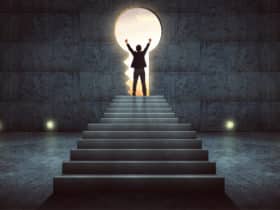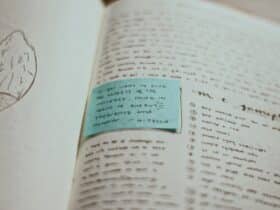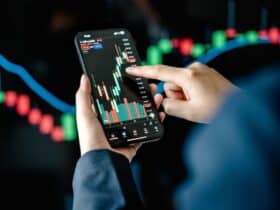Punctuality is your cup of tea.
You’ve never been fired for being late as you always arrive before the workday starts officially. As you’ve come earlier, you have time to start a day slowly. You grab a cup of coffee, turn on a computer, check the email, read the news, scroll Facebook news feed, send a message to your dearest and nearest, and you’re about to start actually working but…
Hold on. You’ve wasted 2 hours on surfing the Internet. Where does the time go?
And you realize that being punctual doesn’t mean being productive.
No matter what your profession is, you should work efficiently to achieve career growth. The more things you do at work, the better your job performance is. It seems to be easy: simply do your work, take challenging tasks, and grow as a professional.
But:
Working in an office, your productivity depends on the work environment around you. It’s impossible to stay focused on completing tasks when there is a big number of office distractions as they are the biggest productivity killers.
If you want to learn how to work better without spending much time, you need to understand how to fight against workplace distractions and, therefore, know what to do when your productivity breaks down.
To begin with:
What are Chronophages?
In 2008, Dr John Taylor created the term chronophage to demonstrate the relativity of time.
Nowadays, a chronophage (aka time eater) is a term in time management which describes everything that distracts you from the working process. They can be either controlled or uncontrolled, but knowing more about them is a must as you can get rid of them once and for all.
Most Common Office Distractions
It’s harsh but true: people spend around 4 hours a day procrastinating. Most people use creativity which affect your overall well-being, so you need to know how to prevent the spread of this illness.
Know your enemy. Here’s the list of most common office distractions:
Emails
The average office worker receives 88 emails a day.
Checking email is the first thing most employees do at the start of a workday, and it’s the biggest distraction.
According to one poll, about 40% of people surveyed that they thought they checked their email between 6 and 20 times per day. As for me, I start my day with this habit even though I know that it takes a considerable amount of time to reply to all emails in the box. Checking the mailbox, we feel like we’re working, but it prevents us from completing more meaningful tasks.
In fact, there are many other ways how to have the best morning routine ever, and mornings shouldn’t start with emails.
Coffee Breaks
Do you like coffee breaks? I bet you do! Most employees would agree that drinking coffee with colleagues helps to build a connection with colleagues, and it’s the best part of a workday.
An average worker spends 24 minutes a day making tea or coffee. If you don’t speak with your colleagues as it’s another distraction at work! Around 24.3% of workers agree that it is the second biggest distraction at work.
While it’s a great way to take a break and boost inspiration, it’s also an actionable way to lose track of the time which means wasting it on non-work duties.
Meetings
Working in an office, it’s more likely you attend job-related meetings regularly to get feedback, share and exchange information, discuss the work process, etc.
Although these events are aimed at solving problems, many meetings are ineffective.
It’s proven that people spend around 31 hours unproductively at meetings over a month! Just imagine how much can you do if you use these hours efficiently, so getting stuck in meetings is a waste of time.
Social Media & Internet
Although most people use the Internet for work purposes, workers spend time surfing non-work-related websites, and checking social media hinder productivity the most.
Photo by Rawpixel on Unsplash
But that’s not all: 28% of employers claim that they’ve fired workers for using the Internet for non-work-related activities (such as posting content on social media or shopping online) during the workday.
Social media are killing our ability to focus as using these sites lead to multitasking. Moreover, using social media at work can lead to dismissal.
Colleagues
The biggest office distraction is your coworkers as you can’t have an impact on them.
Most common reasons why colleagues distract their coworkers:
- Gossiping with other colleagues – while it can be interesting to discuss other colleagues, you keep in your mind that people can discuss you and your work which can cause stress and anxiety. Therefore, gossiping can harm productivity.
- Interrupting – it takes much time and effort to come back to your thoughts once you’ve been interrupted. And many people don’t think that their conversations can decrease other colleagues’ job performance.
- Listening to music too loudly
- Having phone conversations – when other people are talking on a phone, it distracts from the working process as you can’t concentrate on your duties.
- Annoying habits – chewing on a pen, interrupting conversations, shaking legs are just several habits that annoy. Believe it or not, you pay much attention to them and it’s hard to stay focused on work.
Talkative colleagues are another work distraction.
Noise
The work environment matters, and noise levels at work can affect employees’ job performance. There are many sources of noise such as office machines that may squawk or beep, personal stereos, and talkative colleagues that can bother workers.
According to the National Institute for Occupational Safety and Health, ambient noise can increase stress level and cause anxiety.
Hunger
Nutrition is an important life process as it affects your physical and mental health.
Although you’re not food insecure, you often skip breakfasts and lunches as you work hard, and you believe that taking a break for lunch can decrease your productivity.
If you don’t want to waste time on eating, we have bad news for you then. Starving at work affects your possibility to focus and concentrate negatively which means decreasing your work productivity.
To work efficiently, take care of your well-being, and proper eating is a must.
How to fight against office distractions:
Find out how to prevent distracting at work, and you can achieve even more without sacrificing your well-being.
Organize Your Desktop
If it’s obvious that every employee should create a good work environment by organizing the workplace, but just a few of us pay attention the desktop organization.
At the same time, most of the office workers create a big number of files daily: notes, reports, presentations, etc. Sometimes it’s even hard to count their quantity. If you want to save time on searching for important files, you’d better create a system: you don’t have to use common tips, organize the desktop the way you find it comfortable. As for me, I have folders for personal and business files, and I mark them with colors depending on its subject. If you perceive visual info better, pick out an icon to use instead of a typical folder type.
To stay productive, you need to find your most effective way of organizing files, folders, and documents.
Soundproof a Workplace
Employees handle different questions with the phone, and one-sided telephone conversations can be a significant distraction for your colleagues even if you believe that you speak quietly. To reduce the noise level in the office, it’s better to soundproof a workplace, and people should use special areas to speak on a phone in order not to disturb their colleagues.
If you’re an employee, you can invest some money in your productivity: buy headphones to reduce the ambient noise. If you’re a worker, take care of your colleagues, and go out of the office to answer phone calls.
Cut Down on Checking Mailbox
Living in the digital era, we use online technologies to keep in touch even at work. Thus, using emails is an important part of work as it helps to communicate with colleagues and clients. However, in order not to waste time on checking your mailbox, you can set pop-up notifications in order to check email less frequently or set a schedule for email checking and replying.
So, how to save time:
- Check emails twice a day
- Turn off notifications
Some successful entrepreneurs save time by checking the mailbox on the go: use your smartphone to check the mail while waiting for a client or using a taxi. If you know how to optimize your spare time, you can achieve a lot!
Organize Video Conferences
Although 23% of employees claim that conducting conferences is a waste of time, most of us can’t skip this working moment. To make the most out of conferences, and stay focused, organize video calls to increase productivity.
94% of people confirm that video conferences improve productivity. When you run a video conference, you can establish eye contact which means reducing the risk of distractions. People are less bored and more focused and, therefore, you solve the problem faster without making much effort.
Track Time while Working
Working on a particular task, we use more time than is needed. To start being more productive, use time-tracking apps and tools. If you know that your time is tracking, you stay focused on completing the task, so the efficiency is growing.
Want to know the best part? So, time tracking helps to:
- improve planning
- make better use of your time
- avoid multitasking
The list of free time-management tools is big, and you can find out which one works well for you.
Compare your requirements against features each tool provides, before selecting a time tracking tool. Some tools just track time and give you timesheet like report. Some provide task-based reports, and some provide additional functionality like alerting you when you get distracted on social sites or take long coffee breaks. Such tools are awesome as they keep you focused and more productive so that you get a lot more work done each day.
Take a Pause Every 25 Minutes
If you feel a lack of energy to work on your task, take a brief interruption to boost your focus. Scientists claim that the human brain needs a small pause to get back on track, so taking a pause is important for increasing productivity.
To understand when you need to take a pause, rely on one of the most well-known methods, Pomodoro Technique, as it recommends taking a 5-minute break every 25 minutes. It has a range of benefits. For example, it keeps you focused on completing the task and, therefore, you work more intensive. So, set up an alarm clock and boost productivity.
Under-desk Elliptical Machine
Have you ever thought about buying gadgets to enhance productivity at work?
If so, you need an under-desk elliptical machine! Sitting all day long affects your health, and you should spend time doing sports activities if you want to improve your well-being. If you don’t have time to go to the gym after the working day, get this machine! It helps to do physical activities while working, and it significantly increases your productivity. The better you feel, the better your performance is. Moreover, you don’t have to distract from the working process to use this machine. Quite comfortable, isn’t it?
Bonus Tips:
- Improve Attention Span: your ability to focus on things helps to increase the quality of your work. Thus, improving attention span is a must, and the best way to do it is to train self-discipline and concentration.
- Handle Duties on the Go: making the most out of time is a core method to get more things done. For example, you can reply to emails while waiting in a queue, or call a potential client to solve a problem while driving home. Working on the go is another way to start working productively at home.
- Switch off gadgets: although it can be hard to work without devices, it’s a great idea to work offline for a period of time. For example, you can start your morning with switching off gadgets which will allow you to concentrate on completing the hardest task without being distracted by calls, SMS, and notifications.
The Bottom Line
Let’s be real: distractions are the greatest productivity killers. The more office distractions you have, the less productive you are. Although it’s easy to understand, it’s not so easy to prevent distractions and start living a better life at work.
However, the science of workplace distractions gives us an insight on how to fight them and become a successful worker.
What are your time eaters? What tricks do you use to manage them?
This is a guest post by Hugh Beaulac. Hugh is a content manager behind MC2 project. Trying to keep a work-life balance, he is interested in learning handy tips on productivity and job performance. Follow Hugh on Twitter to stay tuned for more!


















